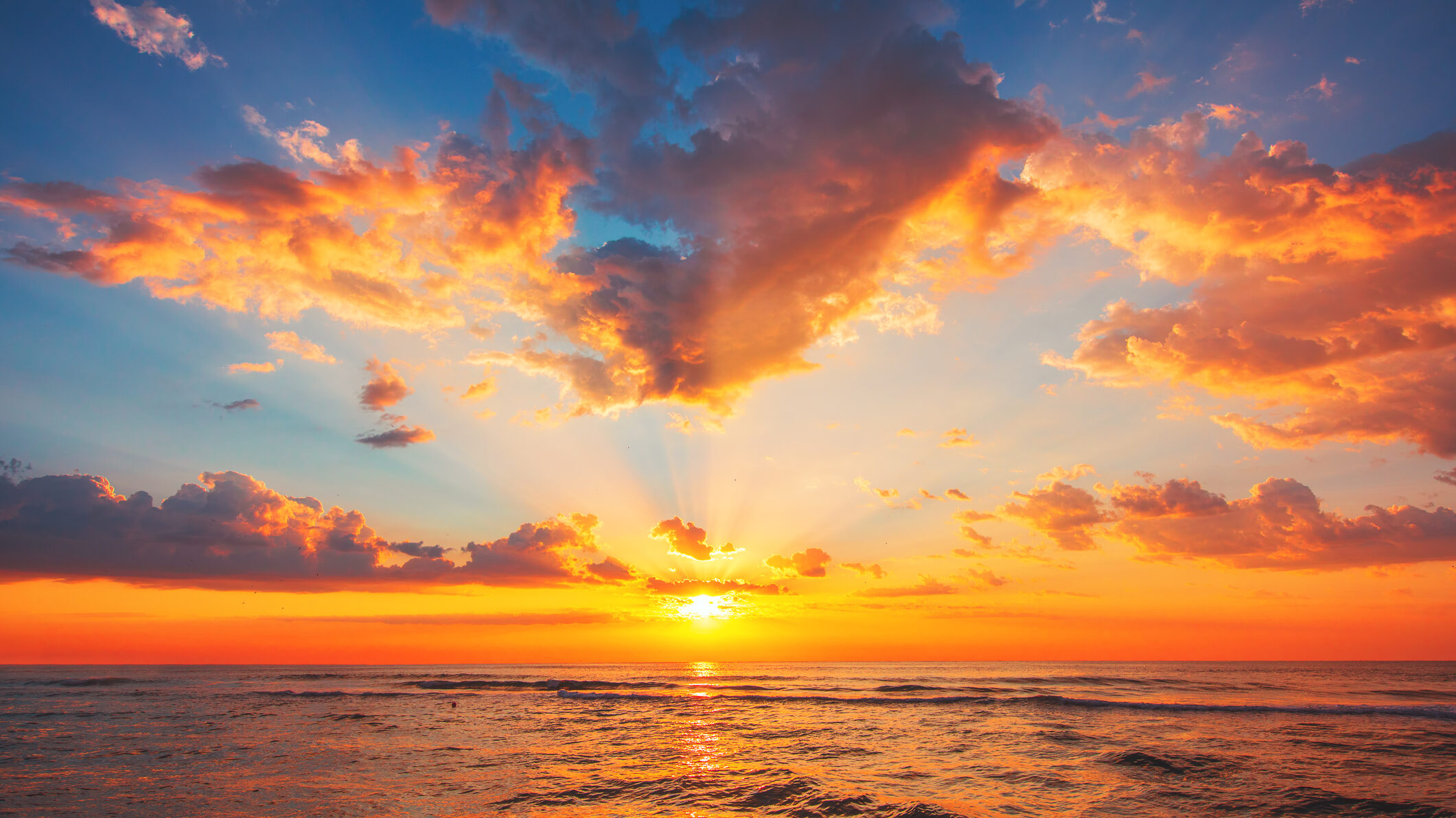
I walk on the beach in the setting sun. The air is soft. The sand under my feet is warm. The rush of the surf quiets, as the calm of the evening falls. I feel happiness, a soft and blissful feeling covers me, touches my material senses and my spiritual body.
What causes this feeling of happiness? What does it mean? Where will it take me? What does it ask of me?
My first and most natural reflex is to think that I have come to the beach seeking this experience, that I know when and where and how to enjoy it. The sunrise is a fact, the beach is a fact, the heat and the light, and all the beauty I experience are part of this world. It is a world that I can experience at my pleasure, at my convenience, on my terms, according to my needs.
Pleasure understood in this way is not real because it will disappear. This is the tragedy of material consciousness: the goodness of what is good cannot be separated from the sorrow that it will unavoidably cause.
The bliss in our moment of happiness on the beach comes from the fact that this sentiment lies neither in the sunset, nor in the sand, nor in the wind, nor in the waves. It lies in our heart. And the key to enjoying fully, authentically, is in our consciousness of it.
If the goal of life is prema, pure, immediate love of the divine, then the means to that goal in this material existence is by channeling the energy of divine sentiments that flow through and around us. The soul is divine. The more we identify with it, the more the flow of Rādhā’s love-giving energy flows through us to the divine.
The experience of beauty in the world is the experience of divine sentiments (rasa). These are the sentiments released in us during our evening walk on the beach.
And yet as sadhakas our relation to our soul, to our spiritual form (svarūpa), is incomplete. Because of our false ego, we experience the world under the illusion that these experiences belong to us, that we we can conjure them when we fancy, and that we are entitled to the pleasures they bring.
Material beauty and the pleasures it brings to our material senses, are not real because they vanishes the moment its material cause disappears. The sunset over the beach pleases our eyes only until it recedes below the horizon. We enjoy the warm breeze only until the air cools, and so on. In short, any material pleasure we may have carries with it the seed of its own bitter disappearance. In gentle desperation this clouds our every experience of material life, tarnishing its beauty, poisoning its enjoyment.
Unlike material beauty, spiritual beauty neither appears nor disappears. What is real has always be real. What is experienced by the soul is eternal.
The sight seen by the spiritual eyes will always be seen. The soft warmth on the skin of the spiritual body will always be felt. The sounds that enter the spiritual ears will always be heard.
In other words, our sublime moment on the beach does not touch our heart because it is beautiful. Rather, it is beautiful because it has been touched by our heart, because it flows from soul, from the divine in us.
The beauty of the world flows not from our material senses but from the divinity of our souls.
Only by being liberated from our material relation to the sunset—and the folly that that our pleasure from it has in any way been caused by our material actions—can we have a full spiritual relationship to it. It is our soul consciousness and the not the world around us that determines how deeply and how purely we experience the world.
In the end, if there is beauty, it is divine beauty. If we enjoy beauty at all, it is through the enjoyment of our soul, and which we receive by embracing the divine in us, by letting flow and letting go.
This flow of the energy of pleasure, the energy of our enjoyment, the very chance at beauty is Rādhā. It is Rādhā who makes our authentic experience of the world possible. And it is Rādhā who lets a feel from the heart and know from the soul.